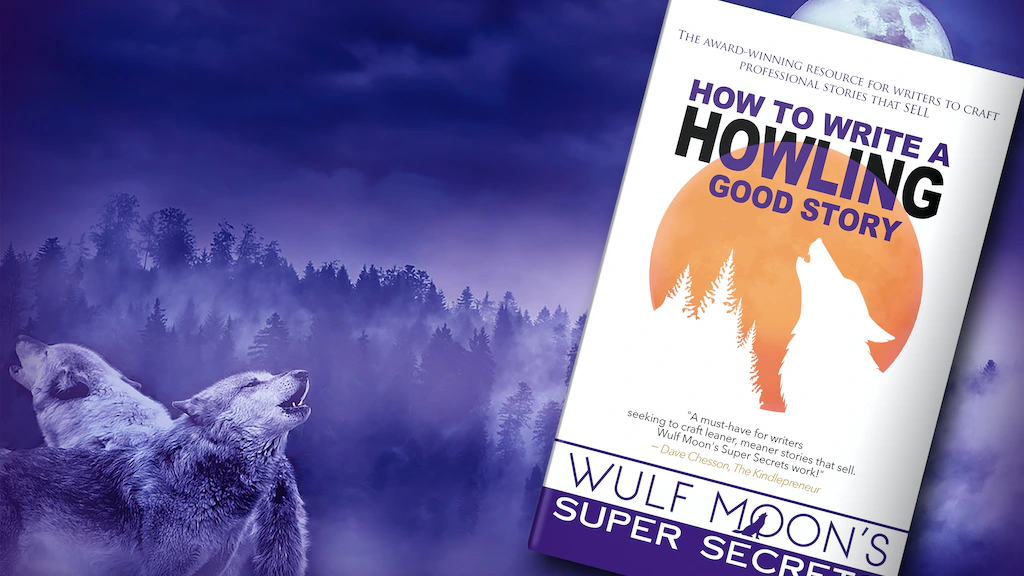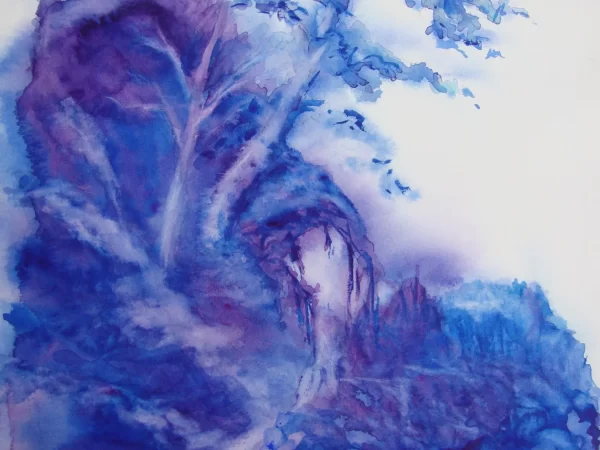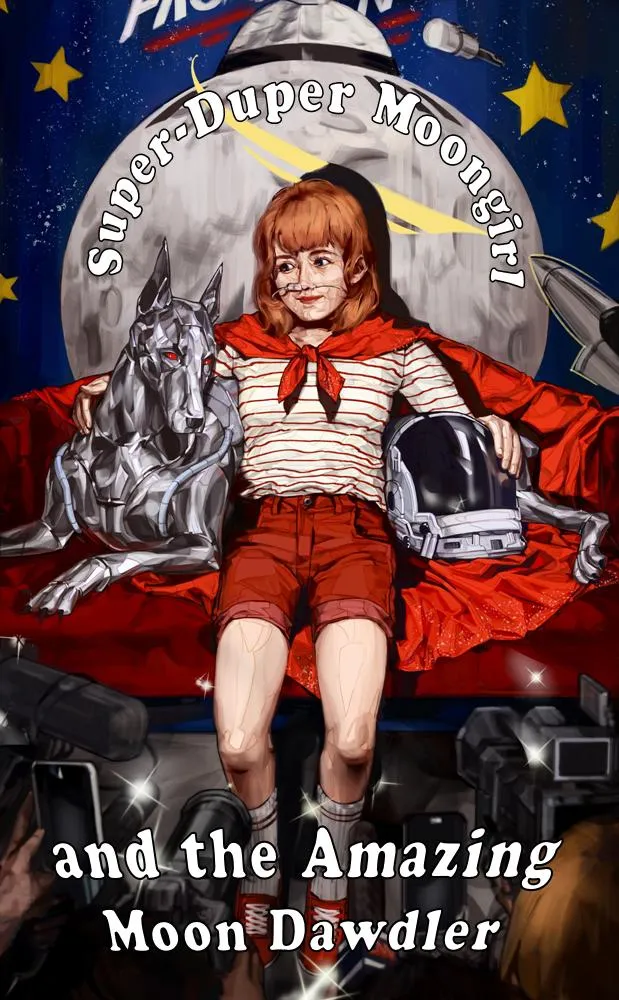wulf moon is leading the pack.
Wulf Moon is not your average writer and coach. After winning Writers of the Future and having his story “Super-Duper Moongirl and the Amazing Moon Dawdler” published in volume 35 in 2019, he didn’t concentrate on growing his own career. Instead, Wulf reached back and created his Super Secrets Workshop. This free online resource has helped many other writers get published and win awards, without having to wait the 25 years it took Moon to discover his story-telling tools. With the release of his book How to Write a Howling Good Story, these secrets are now in print.
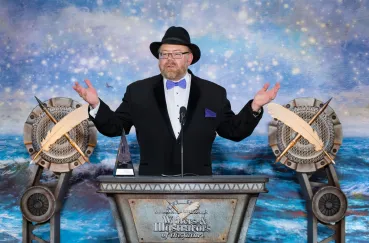
WULF WINNING WRITERS OF THE FUTURE
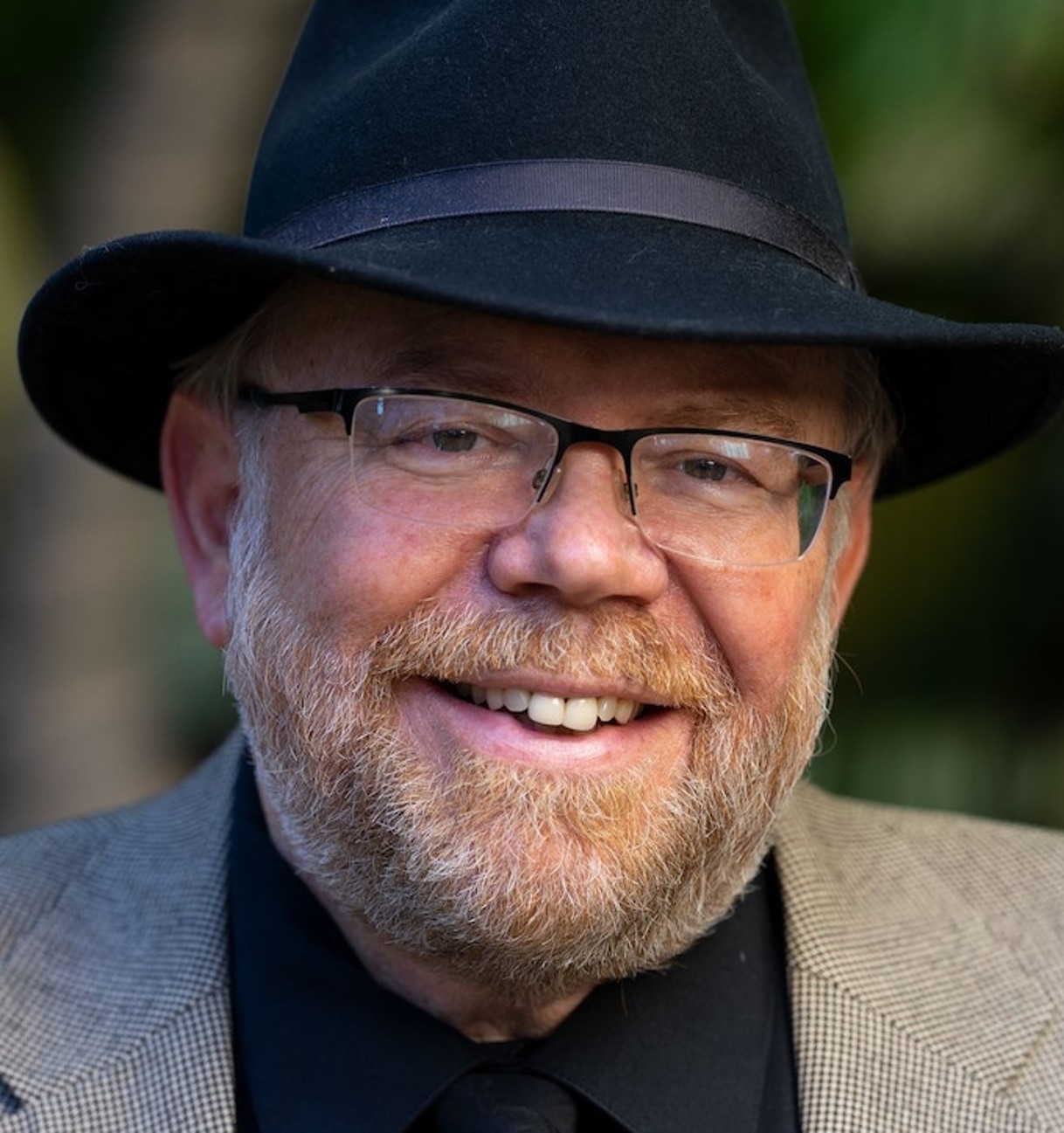
How I Met Wulf Moon
I discovered Wulf Moon’s writing seminars when I took a webinar through the DreamForge 2022 Kick-starter. I learned how to “release my inner kraken” and write in flow state. This was also my ticket into his Discord group, which has been a game changer for my personal writing. I joined “The Wulf Pack”, and now we work as a team to find our “market prey” and grow as creators. I’ve found my new addiction.
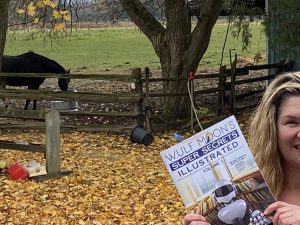
I sat down with Wulf and chatted with him about the Kickstarter, his journey, and future goals. His story is better than fiction. He’s tackled immense adversity and found his way to the top of the writing world. I’m hoping to have another interview with him that delves more into his incredible personal story.
AF: Tell me about your Kickstarter “How to Write a Howling Good Story.” It was awarded a “PROJECT WE LOVE” on the platform. How did this happen?
WM: The Kickstarter for my new book on writing funded in ten minutes, and is over $18,000. Throughout the campaign, it’s been at the very top in their Nonfiction category, and it was listed in the top twenty for several days when searching All Active Kickstarters in the World category. If you’ve watched Kickstarters, you know this is phenomenal success for a first launch. I am thrilled so many writers are backing this project and looking forward to the book!
How did this come about? Four years ago, I won the international talent search contest for speculative fiction writers, Writers of the Future. After winning, I turned around and set up a free year-long workshop for emerging writers called Wulf Moon’s SUPER SECRETS of Writing. It was open to anyone that wanted to join, and I taught them everything I knew to help them advance their craft so that their writing would both sell to respected markets and win contests. Today, eight alumni from that workshop have either won Writers of the Future, been a published finalist in their bestselling anthologies, or both. One of my editing clients won as well. Thousands from around the world enter this contest every quarter. To my knowledge, so many winners coming from one writing workshop in such a short period of time has never occurred before in the Contest’s forty-year history. And it doesn’t end there. Super Secrets alumni have won Baen’s Adventure Fantasy Award, the Mike Resnick Memorial Award, and more. Many now have professional careers.
I have expanded those teachings into paid workshops through my own company, and those taking my courses are invited into a private Discord group called Wulf Pack Writers. Here again, I do this to help emerging writers succeed. So far in 2022, in three respected anthologies we targeted, Wulf Pack Writers made up around half of all stories accepted. The workshop/online resource has won international awards and has over 800,000 views online.
Why has the Kickstarter done so well? The secret is out. The Super Secrets work.
AF: You have become famous in the SF/F community for your Super Secrets on the Writers of the Future Blog. What can readers expect to find in this book? Will there be more books in the series? How many?
WM: That’s kind of you to say, Angelique. If I have become famous, it’s for helping struggling writers to succeed. This became my mission after I had struggled so hard to succeed and formed the Super Secrets of Writing topic, as mentioned with over 800,000 views. What I didn’t mention is that it has almost 5,000 posts to the topic, the majority to help those I mentored to understand the principles behind the teachings. It has become a huge labyrinth for writers to navigate. I’m creating the book at the request (actually demand) of its fans to condense it all and put it into a writing book they can easily study and refer back to.
The name of the book is How to Write a Howling Good Story. It’s available in eBook, trade paperback, and hardcover as a pledge reward in Kickstarter until January 6th, along with many new virtual workshops. It will have most of the topics first shared in the Super Secrets thread, the published articles in my regular series on writing at DreamForge magazine, and new Super Secrets I’ve never shared before.
How many more books will there be? I’ve already published one, The Illustrated Super Secrets of Writing, Vol. 1. This is a workbook, the appetizer to the main course. When I was invited this fall as a guest author to Salt Lake FanX comic con, I printed 151 copies of this full color, fully illustrated, magazine-sized workbook based on my best Super Secrets. It sold out in two weeks. I’m bringing it back as an add-on in the Kickstarter. I recently showed it to Kevin J. Anderson. He flipped through its pages and told me he’s seen nothing else like it in the industry. It’s a publishing jewel, made possible by the brilliant illustrations gracing its pages by the talented Jane Noel, co-owner of DreamForge magazine. You’ve seen it. You have a copy. You know what I’m talking about.
So yes, more to come. More workbooks—thus the Volume 1 in its title—and more books on writing. The next will feature the business and marketing side of writing today’s authors must master. No longer can writers hand over their careers to agents and publishers and lock themselves away from the public in their writing bunkers. Today’s authors need character agency, just as their characters do. They must learn proactive marketing strategies. I’m already working on a book to help them succeed here as well. But let’s get the How to Write a Howling Good Story Kickstarter and book launch fulfilled first.
Good things are here now. More good things are to come.
Today’s authors need character agency, just as their characters do. They must learn proactive marketing strategies.
AF: Why did you create your own writing group, The Wulf Pack? How much of your time does this support group take? What do you get out of running it?
WM: I created the Wulf Pack Writers group so I could give ongoing help to writers taking my workshops. Mentoring isn’t throwing a few bones to hungry writers in a workshop and then waving goodbye. It’s teaching them how to hunt, so they can ultimately fend for themselves.
The startup for professional writers is tough, with few signs in the beginning to give you any indication you’re on the right path. I heard my mentor, the late David Farland, say it takes seven years of focused writing before an aspiring writer can make their first professional sale. Others say something similar—it takes writing a million words. Most writers don’t have the luxury to focus exclusively on their writing—they have full-time jobs, families to feed, bills to pay. As those rejections pile up in those first years after a writer gets up enough courage to complete stories and send them out to markets, many get discouraged. The majority give up. Some, just before they were about to break out and succeed. I know. I’ve snatched a few of those writers out of the fire.
I’ve helped them by staying with them for the long haul. Which can actually be a short haul when you have a mentor that’s done what you’re trying to achieve and has the ability to teach lessons that are easy to absorb. It is true this writing group takes a great deal of my time. I’ve set up officers to help deal with the workload, and members all help and support one another. Just like in my Super Secrets Workshop, the work I do in the Wulf Pack Writers group is free. But it has grown large and is about to grow larger through the many workshops I’m offering in the Kickstarter. I’ll need to put it behind a paywall next year to limit the size and cover the demands on my time running a large writing group requires. I’ve resisted this for years—this is my way of giving back—but as my wife points out, it’s no good if I’m helping everyone else get published at the sacrifice of my own work.
One last point. Many writers are loners, but I believe they should never run alone. All that rejection in the startup can be dangerous for writers. Lone wolves get slaughtered. Wolves that run in a pack survive because they work as a team to help one another. A good writing group working together to succeed can enhance a writer’s path with additional power. And they’ll ease the sting of rejections, and those negative comments that often come from friends and family. They’ll ease the pain, and they’ll howl for your triumphs.
Find your Pack. They’ll give you power.
Lone wolves get slaughtered. Wolves that run in a pack survive because they work as a team to help one another.
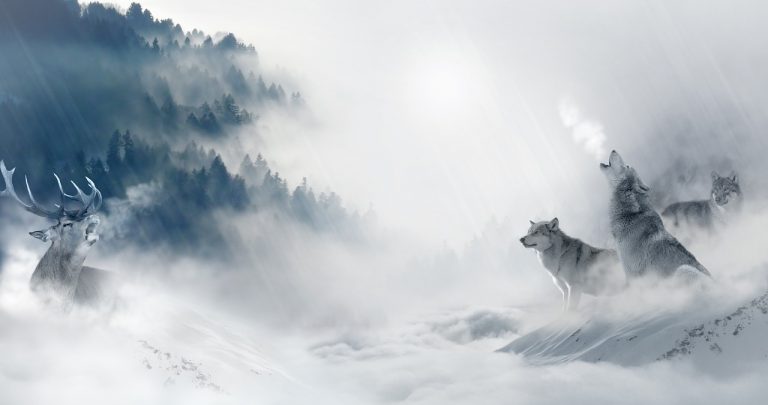
AF: You’ve taken a unique path to your success as an author, and have dabbled in an astounding variety of careers. Can you tell us about that?
WM: Well, there’s a reason for that. A vertebra in my lower back is broken. It’s a quarter-of-an-inch away from slipping off the spinal column, which would sever my spinal cord and make me paralyzed from the waist down. I live with pain every day. Specialists tell me not to lift over ten pounds, and when I ignore my weight restriction, I’ve dropped to the ground temporarily paralyzed, or have ended up bedridden for months at a time.
When I was younger, I didn’t understand how serious my condition was. I broke and trained horses. I worked my way up in a restaurant from dishwasher to cook (some call me a chef, but I’ve never had that level of training, I just love to cook). I worked in a state hospital for the mentally disabled. I was foreman of the nursery of a top bonsai master in the U.S. I learned sales from scratch when my father bought a dozen of the first multi-folding ladders, and then pawned them off on me because he had no time to sell them. I pounded the pavement and developed accounts, even national chains like Target Stores—until the market eventually caught up with me and competitors developed their own brands.
I had another great run for five years with no-touch products for public restrooms—until bigger companies copied our design and lowballed their prices, driving me out of business.
From there, I went into the financial business, and developed the marketing and newsletters for financial startups. We moved to the San Juan Islands, where I expanded my love of painting watercolor and creating lampwork beads into a public studio, and my wife and I bought a clothing boutique in Friday Harbor to expand our creative endeavors. We doubled the business in the first year, tripled it in the second, and then the recession struck and ate us alive as twenty-one businesses in the town closed before us while we tried to ride it out. We lost our business, we lost our island home, my wife had cancer, my own health conditions declined, and in that dark night of the soul, I had an epiphany. I had always planned to make enough money to retire early and write full-time, and it seemed the world had always found a way to pull that rug out from under me. Now that we had nothing to lose, I decided to write full-time and trust that somehow, the money to live on would eventually come.
AF: How has your background affected your writing career?
WM: I’ve learned nothing is certain in life, and while it’s a good thing to provide for your family, you’re not going to be truly happy if you’re selling out on your dream. I’ve always had the desire to write full-time, and throughout my life, I’ve always tried to make course corrections to get there. Learning the power of diverse income streams in my other businesses helped me to make full-time writing as a business possible. And all those diverse experiences I’ve had? The tragedies and the triumphs? They’ve enhanced my stories with realism that only comes from experiencing many life events.
Learning the power of diverse income streams in my other businesses helped me to make full-time writing as a business possible.
AF: Why have you chosen to focus on short stories versus novels/longer length works?
WM: I figured if I mastered the short form, my writing would be at a level where I’d be successful at the long form of novels. I also recognized the necessity of having solid credits to get publishers to recognize that my work was bonafide, worth the risk they take in investing in a new author’s career. While that thinking is mainly outdated now with the decline of author promotion in traditional publishing and the rise of independent publishing platforms, I still believe having good credits and building a strong following before moving on to novels will provide a solid base to build a career upon. I do believe the success of my current Kickstarter provides proof that this theory is correct. At least for me. As they say, your mileage may vary.
AF: What is the most important piece of advice you would give writers looking to find profitability and success in publishing?
WM: Be true to yourself. If you know you’re a writer, and wish to become a published writer and make your living at it, you need to buy out time to write. Period. You will need to find a way to write full-time. That’s going to be hard at the start, and most likely will be a goal you will work toward for many years to come. Keep finding ways to reduce life expenses so you can work less, write more.
If you know you’re a writer, and wish to become a published writer and make your living at it, you need to buy out time to write. Period.
AF: You write in a variety of genres. What is your favorite and why? What do you like to read personally?
WM: I like writing in multiple genres and hybrids because it gets me out of my comfort zone and pushes me beyond my so-called boundaries. We really don’t have boundaries; we simply have new dimensions our writing consciousness hasn’t expanded into yet. Riding to the very edge of my creativity challenges my abilities, and guarantees my readers will be in for a treat with every tale I write. When they pick up a Wulf Moon story, I want them to feel child-like anticipation and wonder, knowing there will be new circus acts under this big top that they’ve never seen before.
My favorite genre to write in? Fantasy in its multitude of forms, even though my science fiction stories have done quite well for me. I love fantasy because it is the unrestricted exercise of the imagination.
AF: What is in the future for Wulf Moon?
WM: Fulfilling my Kickstarter rewards and workshops in the first half of 2023. Devoting the second half of 2023 to novels. It’s time to initiate the final phase of my life-long master plan.
